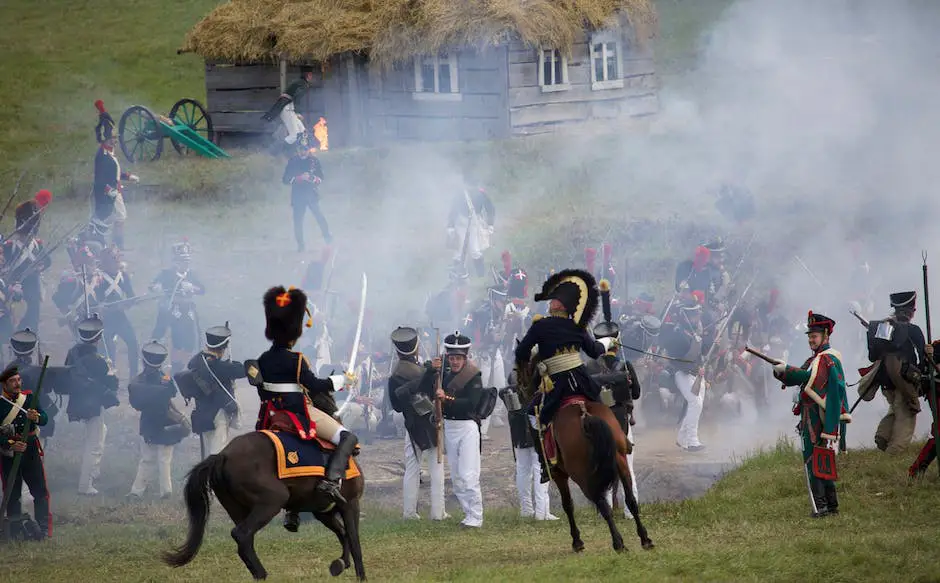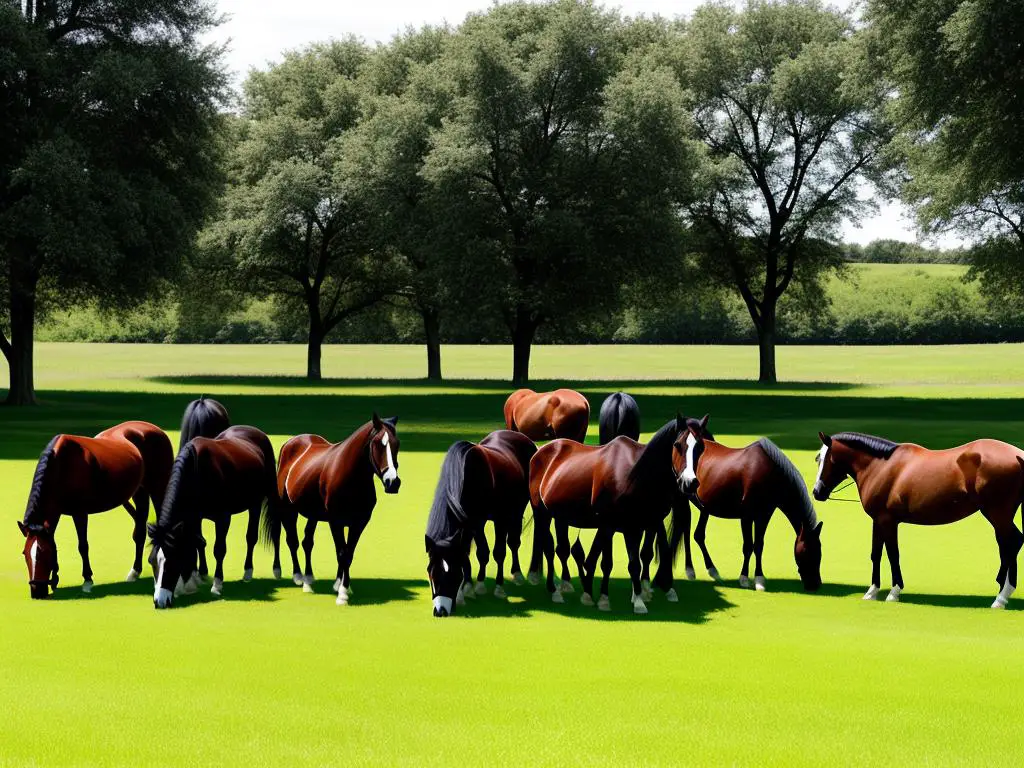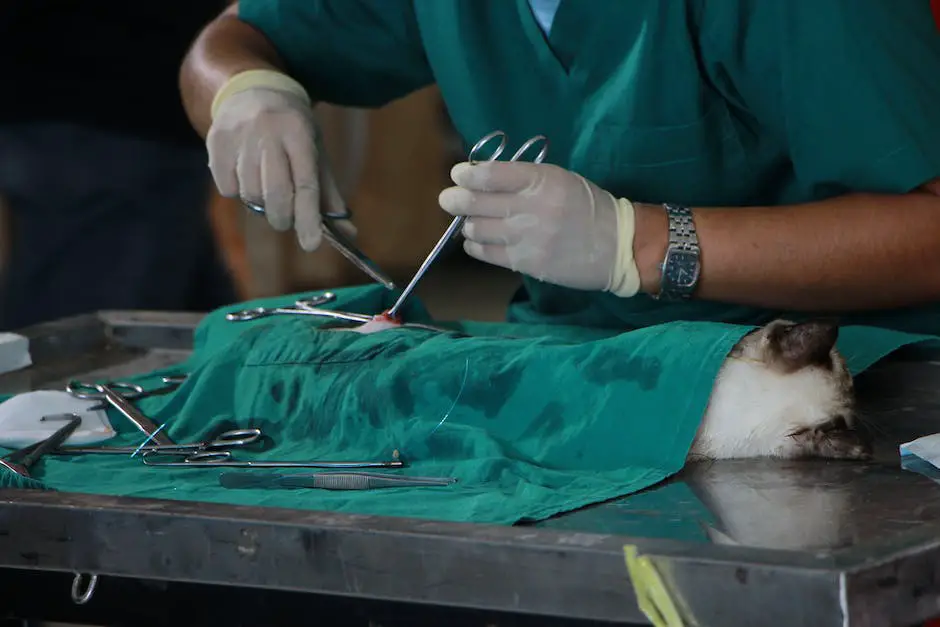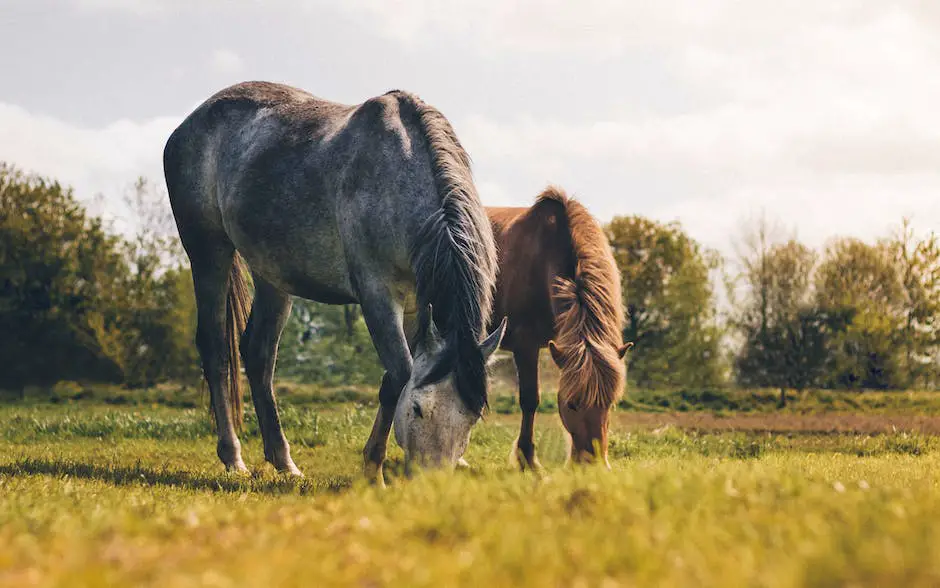The majestic beauty of horses has always been a significant part of French culture. Dating back to ancient times, the art of horse management and breeding in France has evolved into a sophisticated blend of respect for tradition and modern science. The French aren’t just good at nurturing these equine giants; they manifest their love for them in all aspects of horse management, from feeding and exercise to healthcare. This in-depth exploration traces not only the historical backdrop but also provides an understanding of various native French horse breeds, their distinctive traits, and how these influence the practices of horse management in France today. As we gallop through the contemporary practices in French horse feeding, exercise, and healthcare, we illuminate pathways that France has paved to safeguard these wonderful creatures, setting a high bar for ethical standards in horse keeping worldwide.
Table of Contents (Horspedia)
History and culture of French horse management
The Rich History of French Equestrianism
French equestrian culture dates back to the Middle Ages, when horses were primarily used for war and transportation. Noble families and aristocrats began the cultivation of large stables and thoroughbred breeding programs, trying to improve horse bloodlines for warfare and sport. The art of classical dressage, which originated in the military, evolved from these practices. These roots of careful breeding and training have shaped the French culture of horse management till today.
Significance of Horses in French Society
Throughout history, the horse has held a crucial place in French society. From war horses to workhorses, each breed served a unique purpose and contributed to the lifestyle and economy of the country. The French have always appreciated the beauty and power of these magnificent creatures and have taken pride in their horse rearing and training techniques.
Traditional Breeding Methods
French breeding techniques have changed little over the centuries. The country has over 30 regional breeds to its credit, proving its skill and dedication to this field. Traditional French horse management involves a great deal of respect for the natural behaviors of the horse. It’s not unusual for French horses to live outdoors in herds, facilitating natural social interactions which contribute to a horse’s mental health and wellbeing.
Breeders select and pair horses based on their breed, health, temperament, and physical attributes. Pregnant mares receive careful attention to ensure a successful foaling. After birth, the foals are allowed to stay with their dams for several months, and they’re introduced gradually to structured training.
The Importance of Equestrian Sports
The importance of equestrian sports in France cannot be understated. French culture commonly associates prestige and sophistication with equestrian pursuits, especially in sports like eventing, jumping, and dressage. Horses bred for these sports undergo specific training methods to promote agility, strength, and obedience.
Events like the Prix de l’Arc de Triomphe, a thoroughbred flat race, engage national attention. Other popular equestrian events include the Paris Longines Masters and the SoFrench Jumping. Riders and breeders are celebrated for their achievements, further cementing the importance of horse management in France.
Considering the Tradition and Innovation in French Equestrian Management
The unique culture of French horse management is both informed by rich traditions and continually reinvented by modern practices. Methodically intertwining the latest scientific research with long-held customs, France has fostered a standard of horse handling that champions humane, respectful treatment of these majestic animals.
The future of French horse management sets the challenging task of striking the perfect balance between honouring custom and adopting progress. Provided that the French perpetuate their unwavering admiration and respect for the horse, their unique equestrian culture is ensured vitality for numerous generations ahead.

French horse breeds and their characteristics
A Guide to Native French Horse Breeds and Their Identifiable Features
Boasting a rich equestrian heritage, France is the home to an impressive collection of native horse breeds, each celebrated for their distinctive attributes, captivating beauty, and distinguished skills. These breeds have been carefully cultivated and influenced by the country’s diverse geography, its specific climate conditions, and the demands of its citizens. Grasping the complexities of these breeds is key to understanding French horse management in its entirety.
Percheron
Deriving its name from its birthplace, Le Perche, the Percheron is unquestionably noteworthy for its immense size and powerful stature. Regarded as one of the most populous French draught horses, they can grow to an imposing 17.2 hands high and weigh a hefty 2,600 pounds. They exhibit a muscular yet compact build, characterised by a broad chest, resilient neck, and robust legs. Remarkably, despite their intimidating size and strength, Percherons possess a gentle disposition and reputable intelligence, traits which qualify them as excellent working animals and equally proficient for riding and driving activities.
Camargue Horse
Native to Southern France’s Camargue region, these horses are characteristically small yet incredibly hardy, often living semi-feral in challenging marshland environments. Certainly, their strength, endurance, and adaptability have led to their use in cattle work, riding, and even in traditional performances and festivals. The Camargue horse’s most striking feature is its white coat, although the breed is actually born with darker colors that gradually lighten as they mature.
Norman Cob
The Norman Cob, originally from the Normandy region, is a versatile breed, traditionally used for both farm labor and transportation. They are known for their robustness and endurance, qualities that have earned them a reputation as excellent work horses. Characteristics include a strong neck, a deep chest, powerful hindquarters and overall well-muscled structure. Their versatility also extends to equestrian sports; Norman Cobs are commonly used in show jumping, dressage, and pleasure riding.
French Trotter
As the name implies, this breed excels in trotting competitions. Originating in Normandy, the French Trotter is a large horse with strong bones and a muscular structure. Their speed, especially at the trotting gait, and stamina make them ideal for harness racing – a wildly popular sport in France. Prominent features include a well-muscled back, deep chest, and a broad croup.
Selle Français: France’s Fascinating Breed
Renowned for its strength, versatility, and impressive jumping prowess, the Selle Français, or “French Saddle Horse,” holds the title of France’s most prominent sport horse breed. These magnificent creatures exhibit a harmonious mix of grace and power, featuring athletic, muscular bodies, long legs, and a spirit full of life. Bred mainly for the show jumping arena, they are testament to the dedication and excellence embedded in French equestrian practices.

Common practices in French horse feeding and exercise
Feed and Exercise: The Pillars of French Horse Management
When it comes to French equine management, the modus operandi involves a delicate balance, bridging the horse’s natural behaviors with the discipline required by various equestrian sports including, but not limited to, racing, dressage, and eventing. Central to this balance is the remarkable correlation between feeding and exercise programes— an approach setting the French horse management apart from that of other equestrian cultures, and further evidencing a commitment to the well-being and performance of these amazing animals.
The French Philosophy on Horse Feed
Contrary to common practices in other parts of the world, French horse owners tend to provide their horses with a less processed, more naturally-inclined diet. Instead of relying heavily on concentrated feeds or energy-rich concoctions, French horse diets primarily consist of high-quality forage. Hay and pasture grass form the mainstay of a French horse’s diet, often complemented by small amounts of grains for energy and mineral supplementation for balanced nutrition.
This natural feeding approach reflects the French belief in allowing horses to be as close to their natural state as possible, acknowledging and working with the horse’s innate behaviors and preferences. While nutritional supplements can be used as required, these are usually the exception rather than the norm. This is a marked contrast to practices in countries such as the United States, where processed feed and supplements often comprise a significant portion of a horse’s daily intake.
Exercise and Training in French Horse Care
Similarly, French equestrian culture also emphasizes the importance of regular and varied exercise. French trainers believe in the value of a consistent regime that is well-adapted to each horse’s specific needs, character, and discipline.
Each day typically includes pasture turnout, where horses are allowed to roam freely and interact with others, reflecting their herd behavior in the wild. Literature indicates that this can improve both physical health and mental well-being in horses. Training sessions, meanwhile, are interspersed with long, relaxed rides and days dedicated to purely recreational interactions, such as grooming or casual walks.
This approach contrasts with more regimented training practices seen elsewhere, where focus may be more heavily geared towards intensive, structured exercise sessions. In the French perspective, allowing horses a sense of normalcy, freedom, and enjoyment is as essential as structured training.
The French Approach to Equine Care
Drawing a harmonious balance between natural instincts and disciplined veterinary practices, French horse management has established a distinctive reputation in the world of equine care. At its core, the emphasis is on ensuring a natural diet and varied physical activities, respecting the inherent behaviors and preferences of the horses. This integral approach to horse care focuses on their physical fitness, nutritional wellbeing, and mental equilibrium. This makes French horse care practices significantly different from other global practices, bolstering France’s accolades in several equestrian domains.

Healthcare practices in French horse management
An Overview of French Horse Healthcare Practices
In line with the unique French philosophy, equine management is grounded in numerous health-focused practices. Central to these is a meticulous implementation of regular healthcare procedures, timely vaccinations, early detection and intervention for common ailments, and stringent preventive measures. Furthermore, open and continual dialogue with veterinarians and equine experts is considered vital to ensuring the highest standards of horse health.
French Horse Health Procedures: Routine Check-ups and Examination
French horse management places great value on routine check-ups and examinations, ensuring that any health complications are identified and addressed promptly. This includes regular dental checks, hoof care and balancing, and constant monitoring of the horse’s weight. Observing the physical appearance, energy levels, coat condition, and behavior are also significant indicators of the horse’s health status.
Vaccination Schedules in French Horse Management
Just like human healthcare, immunization plays an integral role in horse healthcare. In France, vaccines against numerous equine diseases, including Equine Influenza and Tetanus, are administered routinely. However, depending on the specific risks related to the horse’s environment or use, other vaccines against diseases such as Equine Herpes Virus and West Nile Virus may also be recommended.
Common Illnesses in French Horses
While the nation’s practices in horse management generally lead to good equine health, some common illnesses can still surface. Equine influenza and strangles are among the respiratory diseases that often affect horses in France. Lameness, related to the horse’s workload, is another commonly encountered issue. Colic, a digestive disorder, is a serious health concern and a leading cause of death in horses globally, including in France.
Preventive Measures in French Horse Management
Mitigating these illnesses and other potential health setbacks requires the application of preventative measures. This comprises maintaining proper stable hygiene, ensuring adequate and balanced nutrition, allowing sufficient rest and exercising the horse regularly to prevent sedentary-related problems. Horse owners also use protective equipment like boots, bandages, and rugs to prevent physical injuries during the horse’s activities.
Role of Veterinarians and Equine Specialists
In this quite complex framework of French horse management, veterinarians and equine specialists have a central role to play. Their tasks involve not only recommending and administering vaccines and treatments, but also advising on preventive measures, dietary changes, or behavioral modifications. Continuous training and upgrading of knowledge and techniques are also a must, considering the rapid scientific advances in equine health practices.
French horse management takes into consideration a wide range of factors, all important for ensuring the overall health and well-being of the horse. From preventive care and regular check-ups to treatment and grooming, each aspect is crucial. Also, the seamless cooperation with professional veterinarians cannot be overlooked, as their role is instrumental in maintaining the horse’s healthy state.

Regulations and ethical aspects in horse keeping
Regulatory Considerations in French Horse Management
In France, the management of horses is subjected to meticulous regulations with guidelines set forth not only by the French government, but also by international equestrian organizations. These laws and guidelines underscore the country’s commitment towards ensuring the well-being, health, and rights of horses.
Predominantly, the French Rural Code serves as the guiding principle for animal welfare, including horses. It mandates that a person entrusted with the care of a horse must ensure the animal’s well-being. This encompasses important aspects such as nutritious food, necessary care, protection from harsh weather conditions and diseases, and prompt veterinary aid.
Moreover, as a member of The World Organisation for Animal Health (OIE), France adheres strictly to global standards for equine health and welfare. The OIE’s Terrestrial Animal Health Code has a chapter specifically dedicated to the welfare of working horses. It outlines best practices in areas such as feeding, hydration, stabling, and veterinary care.
Ethical Aspects in Horse Keeping
Beyond legal obligations, there’s a heightened focus on ethical horse management in France. The French equine industry aims to treat horses humanely and strives to adhere to the best practices in horse care.
These ethical considerations extend beyond the basic care and welfare of the horse, encompassing issues like breeding practices and humane end-of-life choices. Performance horses, for instance, have specific ethical considerations governing their training, competing, and retirement. There are guidelines specifying the maximum amount of work they can do, rest periods, and training methods.
Animal Rights in French Horse Management
In France, horses are considered as sentient beings under the law. The updated 2015 French Civil Code asserts that animals have biological and emotional needs and deserve legal protection. The government and animal rights organizations work together to ensure the rights of horses are upheld.
Horse owners and keepers are legally obligated to provide a standard of care that meets the horses’ physical and mental needs. Instances of abuse and neglect are punishable by law.
Organizations like the Foundation for the Horse play an important role in French horse management. They oversee equine protection, provide education about horse welfare, conduct ongoing research, and ensure ethical equine practices are being followed.
Aiming for Sustainability in Horse Keeping
In the face of the climate crisis, sustainable practices in horse keeping are gaining traction in France. This entails managing horses in a way that’s not only good for the horse, but also for the environment.
Best practices in sustainable horse keeping include rotational grazing to maintain soil health and prevent overgrazing, composting horse manure for use as a natural fertilizer, efficient water management, and using eco-friendly products for horse care.

From the lush pastures of Normandy to the sophisticated veterinary institutions in Lyon, France’s commitment to quality horse management, steeped in a rich historical framework, is undeniable. The French influence has sculpted the face of global equestrian sports, bearing the interplay of tradition, breed knowledge, feeding, exercise, and healthcare practices. Nuanced with a thorough understanding of native horse breeds, the French have crafted a distinctively prosperous equestrian domain. Yet, the endearing aspect of these practices remains the balanced blend of laws and ethics towards horse keeping. Not simply regulated, French horse management is imbued with compassion and respect for animal rights, with a receptive attitude towards sustainability and continued excellence, embodying a truly humane model for the rest of the world to emulate.
